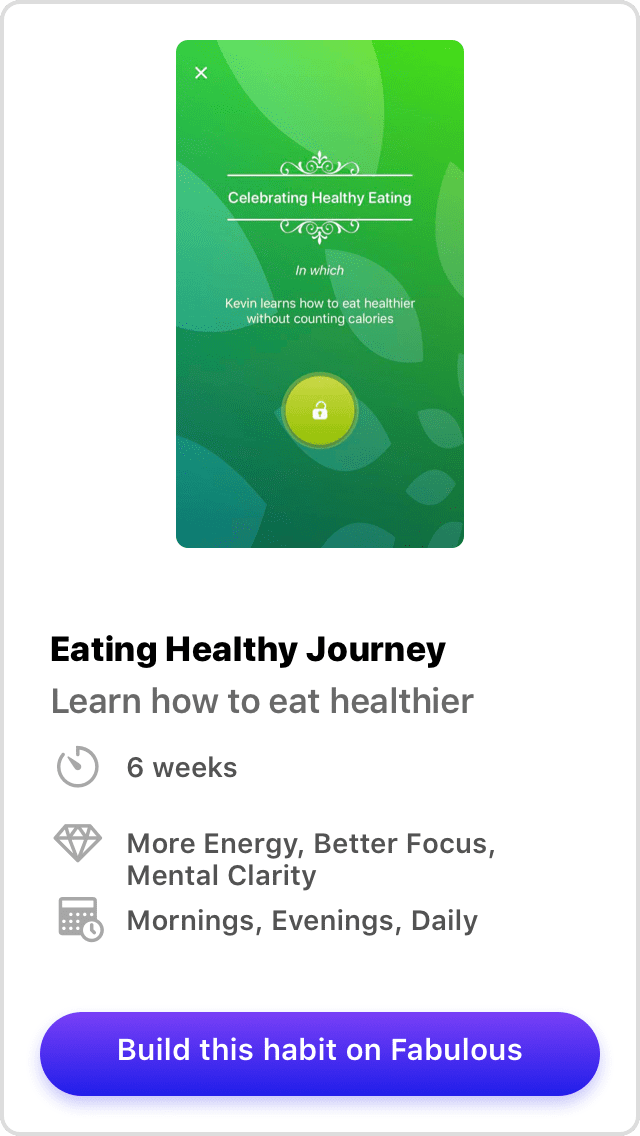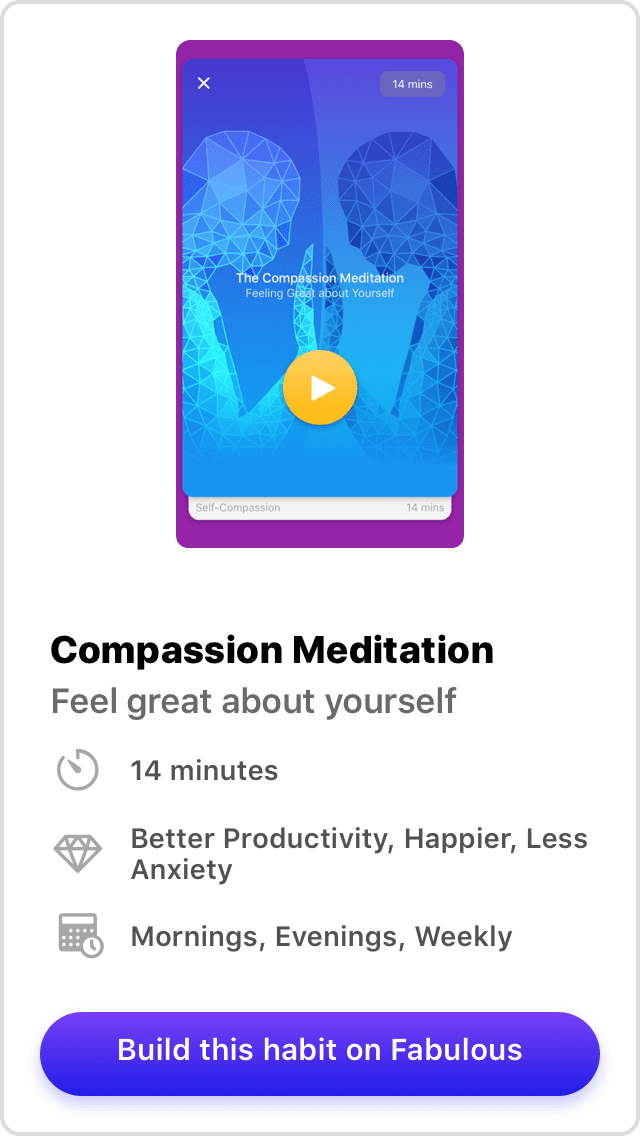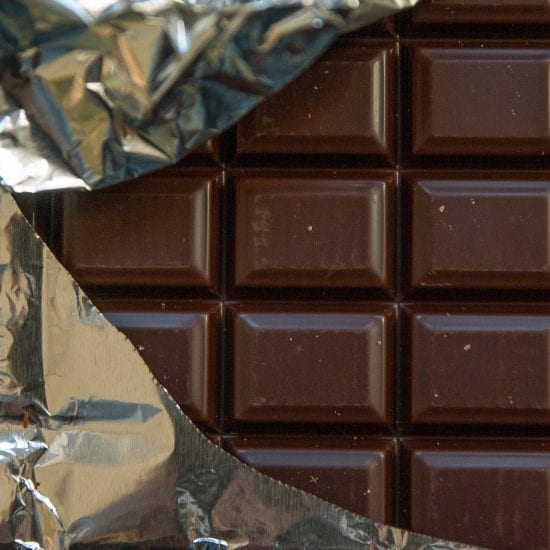Do you sometimes groan as you think about making breakfast? Are your current healthy breakfast ideas a little… uninspiring? Do you frown as your hand drowsily moves to pick up the tin of oats? Do you find yourself wishing you had something more interesting to eat for breakfast?
Well, how about some chocolate?
Now you’re definitely wide awake, and curious. Perhaps also a little suspicious. After all, you’re attempting to build good habits, and this article is trying to tempt you with what we usually think of as a “guilty pleasure”? Why?
To start with, that phrase isn’t completely accurate anymore. For decades, conventional wisdom stated that chocolate wasn’t healthy because it was high in sugar and fat. While that’s not necessarily false, research has discovered that cocoa (the key ingredient in chocolate) contains several compounds that have remarkable health benefits.
Are you looking for ways to improve your diet? Start the “Celebrating Healthy Eating” Journey on the Fabulous app to learn how to eat better without counting calories!
“Food of the Gods”
Civilizations across the world have revered chocolate, not just for its rich and unique taste, but also because of perceived nutritional and medicinal properties. Here are just some of the ways that adding chocolate to your diet can prove useful.
It’s Good for the Heart
Several studies have indicated that eating chocolate in moderate quantities helps to prevent the risk of stroke as well as reduces the chance of developing heart disease. The flavonoids in chocolate help your veins and arteries to remain supple. Eating chocolate has also been shown to prevent blood clots, which in turn reduces the risk of heart attacks. So the next time you see a heart-shaped box of chocolates on Valentine’s Day, remember that it has a deeper meaning!
It’s Good for the Brain
Scientists at Harvard Medical School believe drinking two cups of hot chocolate a day can help keep the brain healthy and reduce memory decline in older people. And if you’re young and stressed at work, don’t worry, you too can grab a cup of hot chocolate during a break! Because it turns out drinking this particular beverage helps improve blood flow to parts of the brain that require it the most. You’ll feel both happier and smarter when you get back to your desk.
Interestingly enough, British psychologists even found that hot chocolate helped students perform better in mathematics. So the next time you’re preparing for a difficult exam, you know what to drink during the break.
It’s Good for the Mind
Almost all of us have craved a tub of ice cream or a bar of chocolate when we’re feeling down and out of sorts. It turns out there’s a scientific reason for that. It’s not simply because chocolate tastes good. Rather, it contains “cocoa polyphenols” that increase positive mood and an overall sense of calmness. Chocolate also helps in the production of endorphins, the hormone that increases our sense of happiness and combats feelings of depression.
Sometimes food alone cannot make us feel better. Try “The Compassion Meditation” session in the app’s Make Me Fabulous section to learn how you can feel great about yourself!
It’s Good for the Body
There are many more benefits of consuming chocolate in appropriate quantities. It’s been shown to reduce the risk of cholesterol, boost your performance during workouts, help combat Alzheimer’s disease, lower blood pressure and even avoid sunburns! Just make sure to eat the chocolate before it melts away.
So What’s for Breakfast?
You might probably be delighted right now, and picturing all the chocolate-filled products you’ll grab when you raid the local supermarket. But not so fast! While it’s true that chocolate is healthy, it’s important to understand two things: ingredients and quantity.
The Right Quality of Chocolate
One of the reasons why chocolate has such a negative image among those who are health conscious is because the majority of products in that category are in fact more harmful than beneficial. All the above-described benefits are derived from flavanols (natural nutrients) that are present in cocoa.
Sadly, a lot of commercial chocolate contains too much sugar and fat, and too little cocoa. So if you do decide to liven up your breakfast with chocolate, prepare to hunt through the aisles until you get the right brand. Check the ingredients to make sure the percentage of cocoa used is high, and the amount of sugar and fat isn’t. It won’t be easy, but it’ll certainly be worth it!
As a general rule of thumb, look for dark chocolate rather than light. While the addition of milk in “light” chocolate might provide you with calcium, it’ll also have a lesser quantity of cocoa and all the flavanols that come with it.
The Right Quantity of Chocolate
Thanks to its rich taste and texture, you’ll need to be careful when consuming chocolate. It’s quite easy to overeat, so the priority should be to understand how much you can have on a daily or weekly basis. The general average is between 1 and 2 ounces, or 30 to 60 grams a day. But your recommended intake might change depending on your age, height and overall physical activity. Remember to start cautiously and then work your way up, rather than the other way around. The key, as always, is balance and moderation.
The Right Kind of Recipes
When it comes to incorporating chocolate into your breakfast meals, the key is to experiment and plan ahead. There’s no need to hurry and try to get your recommended intake right away. Instead, learn what works for you. The healthiest recipes are the ones that combine something tasty with something nutritional. Try adding pure cocoa powder to your morning smoothie, or perhaps dark chocolate chips to a bowl of oats. Chocolate goes great with a variety of breakfast options, such as chia pudding and a standard fruit bowl. Here are a few recipes you can try out to start with. And once you get the hang of it, let your imagination take over!
But always be careful of getting carried away. It’s very easy to develop a liking towards chocolate, and after a while, you might be tempted to pick up the sugarier, less healthy versions of it. So remind yourself that chocolate is not meant to be a guilty pleasure, but rather a way to feel good while getting healthier.
Bon Appétit!
Ready to try out new breakfast recipes, but feeling a little daunted? Take up the “Group Cooking” challenge and build your cooking skills by teaming up with a supportive partner or friend!






